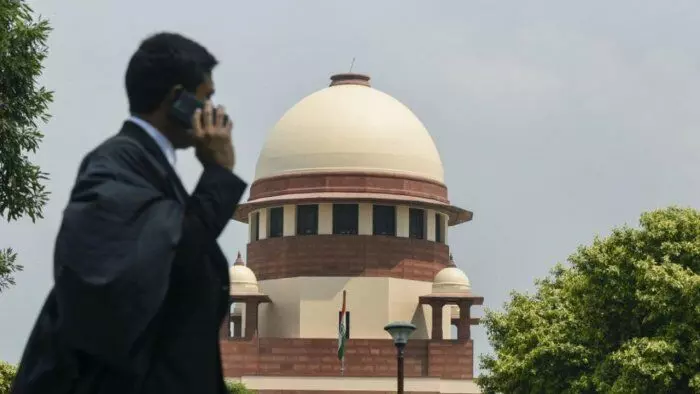Defaulting borrowers cannot thwart auction process by repaying dues any time: SC

New Delhi: A defaulting borrower cannot be allowed to thwart the auction of his mortgaged properties by creditor financial institutions by repaying dues “any time”, the Supreme Court ruled on Thursday.
The top court held that such a borrower cannot seek redemption of his mortgaged property if he fails to repay the dues to financial institutions before publication of auction notice under a law governing recovery of Non-Performing Assets (NPAs).
Highlighting the sanctity of the auction process, a bench of Chief Justice DY Chandrachud and Justice JB Pardiwala said, “It is the duty of the courts to zealously protect the sanctity of any auction conducted. The courts ought to be loath in interfering with auctions, otherwise it would frustrate the very object and purpose behind auctions and deter public confidence and participation in the same.”
It was dealing with a provision of the Securitisation and Reconstruction of Financial Assets and Enforcement of Security Interest Act, 2002 (SARFAESI Act).
Section 13 (8) of the Act provides that a borrower can claim back his mortgaged property from FIs “at any time before the date of publication of notice for public auction or inviting quotations or tender from public or private treaty for transfer by way of lease, assignment or sale of the secured assets” on payment of entire dues.
Justice Pardiwala, who penned the 111-page verdict said, “We hold that as per the amended Section 13(8) of the SARFAESI Act, once the borrower fails to tender the entire amount of dues with all cost & charges to the secured creditor before the publication of auction notice, his right of redemption of mortgage shall stand extinguished/waived on the date of publication of the auction notice in the newspaper in accordance with Rule 8 of the Rules of 2002.”
The verdict came on an appeal of Celir LLP challenging a Bombay High Court order.
The High Court had allowed another firm Bafna Motors (Mumbai) Pvt Ltd to redeem its mortgaged property on payment of dues to the bank.
The top court set aside the Bombay High Court verdict, saying it was not justified in exercising its writ jurisdiction, particularly when the borrowers had already availed the alternative remedy available to them under the SARFAESI Act.
It directed the Union Bank of India to refund Rs 129 crore, the entire amount deposited by the borrowers for redemption of mortgage of the secured asset, at the earliest.



